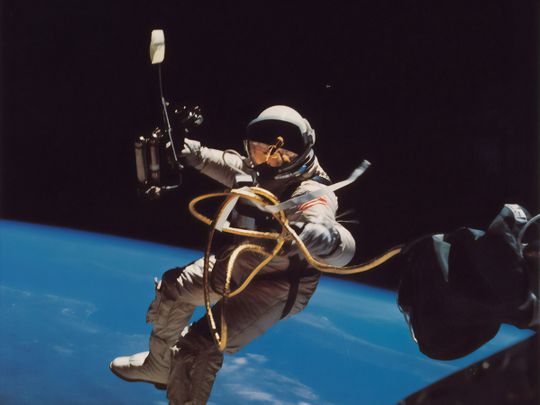
Last month, American astronaut Frank Rubio returned to Earth, after spending 371 days in the International Space Station (ISS). And he’s not the same.
Click start to play today’s Spell It, where we learn how ‘simply’ being in space for extended periods of time alters the human body.
Rubio’s time in space marks the end of the longest single spaceflight by an American, ever (the longest spaceflight by a human is credited to Russian cosmonaut Valeri Polyakov, who spent 437 days in the Mir Space Station in the 1990s). In that time, Rubio clocked a total of 5,963 orbits around the Earth and travelled 253.3 million kilometres.
But when Rubio touched down, he had to be carried out of the Soyuz MS-23 spacecraft by recovery teams, since the low gravity environment aboard the ISS took a toll on his body. Here are other aspects that are likely to affect Rubio, and other astronaut who spend over a year in space:
1. Muscles and bones
With the loss of gravity in space, our limbs, muscles and bone mass quickly begin to diminish. According to US space agency National Aeronautics and Space Administration (Nasa), the muscles that are most affected are the ones that help us maintain our posture – in our back, neck, calves and quadriceps. Since we don’t need them as much in a zero-gravity environment, they don’t have to work as hard, and begin to atrophy. A June 2009 study published in the Canadian Medical Association Journal found that muscle mass can reduce by as much as 20 per cent after just two weeks in space.
Similarly, bones too, start to demineralise and lose strength. Astronauts can lose up to 10 per cent of their bone mass over a six-month period, and studies have found it can take up to four years on Earth for their bone mass to return to normal. It’s why astronauts eat diet supplements and do at least 2.5 hours of exercise and intense training while on the ISS.
2. Weight loss
Weight doesn’t mean much when you’re in space, since anything that’s not tethered down can move about freely on the ISS. Even though Nasa ensures its astronauts have a wide variety of nutritious food available to them, maintaining a healthy weight in space can be challenging. Scott Kelly, an American astronaut who was onboard the ISS for 340 days, lost seven per cent of his body mass while in orbit. Researchers found that the bacteria and fungi residing in his gut had changed profoundly, compared to when he was on Earth.
3. Eyesight
On Earth, gravity forces blood to move downwards, while the heart pumps it up again. But in space, blood can accumulate in the head more frequently, with some fluid pooling at the back of the eye and around the optic nerve. This can result in oedema, and changes in vision, such as decreased sharpness along with structural changes to the eyes. Exposure to galatic cosmic rays and solar particles has also been found to cause eye problems. While on Earth, we’re protected by our atmosphere, but in space, this protection goes away. Astronauts have reported seeing flashes of light in their eyes, because of cosmic rays hitting their retina and optical nerves.
These are just some of the aspects of the human body that are altered in space.
What do you think of the toll space takes on our bodies? Play today’s Spell It and tell us at games@gulfnews.com.







